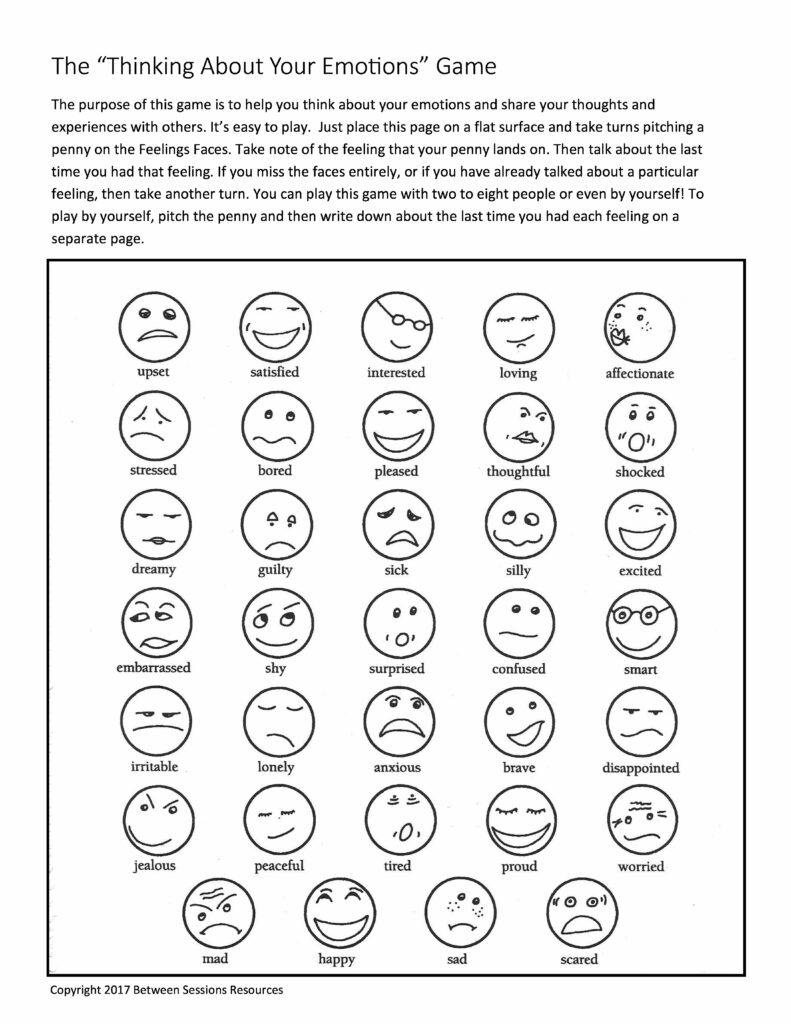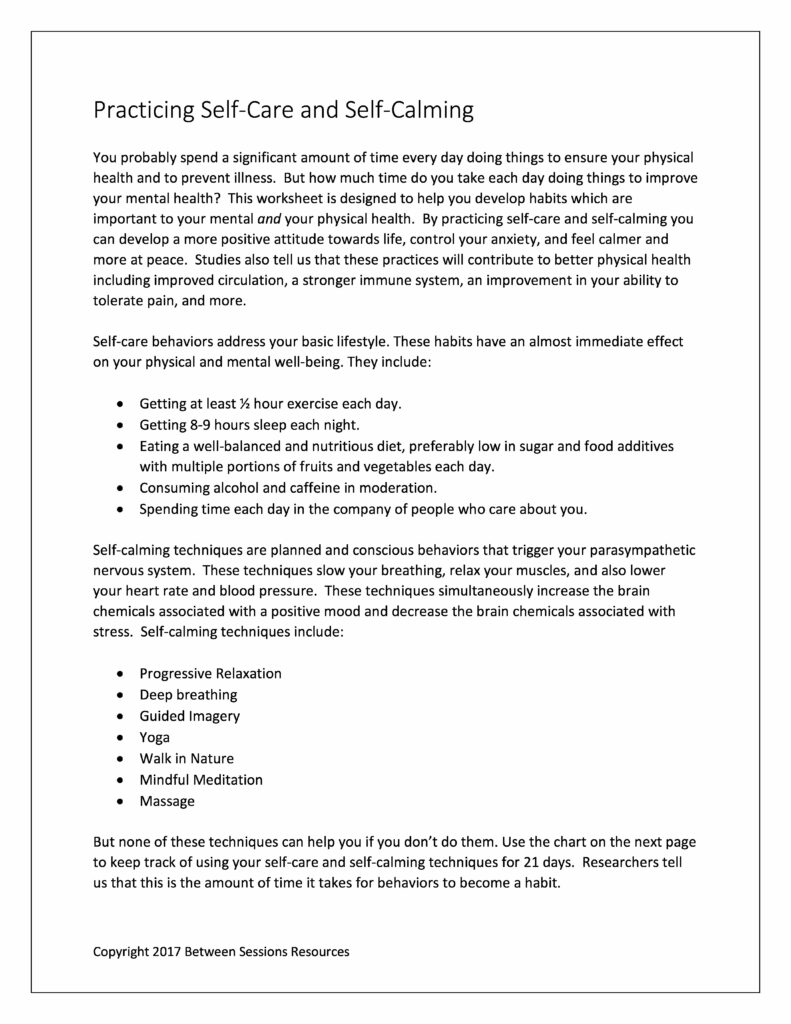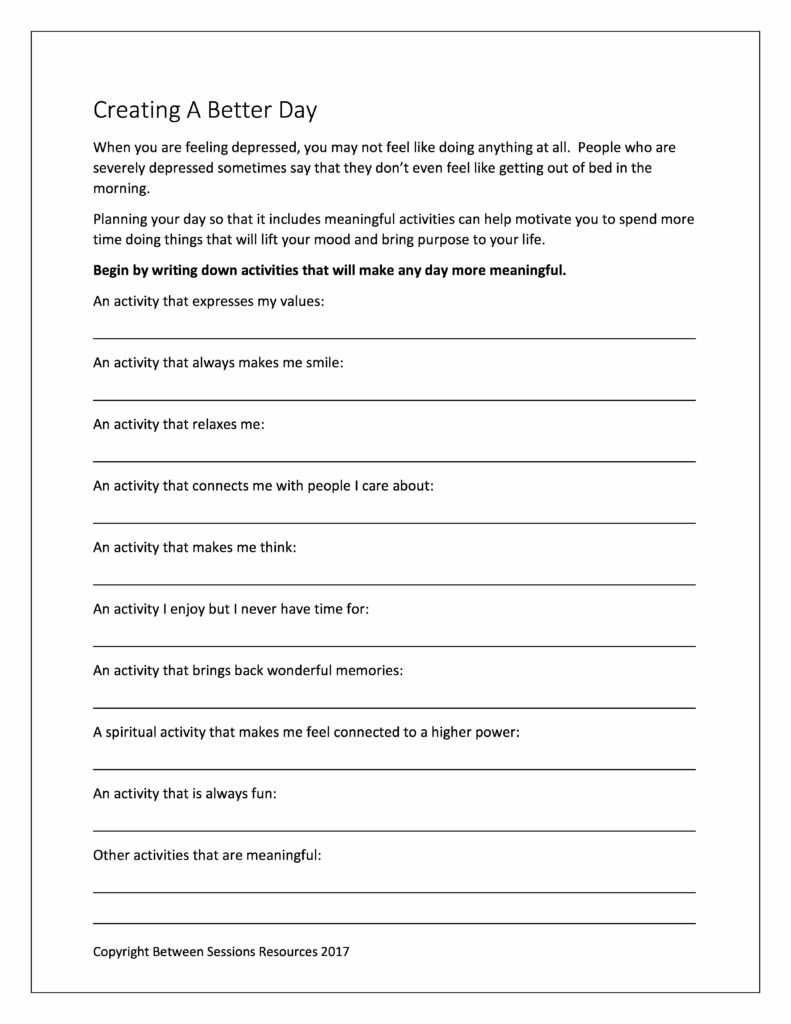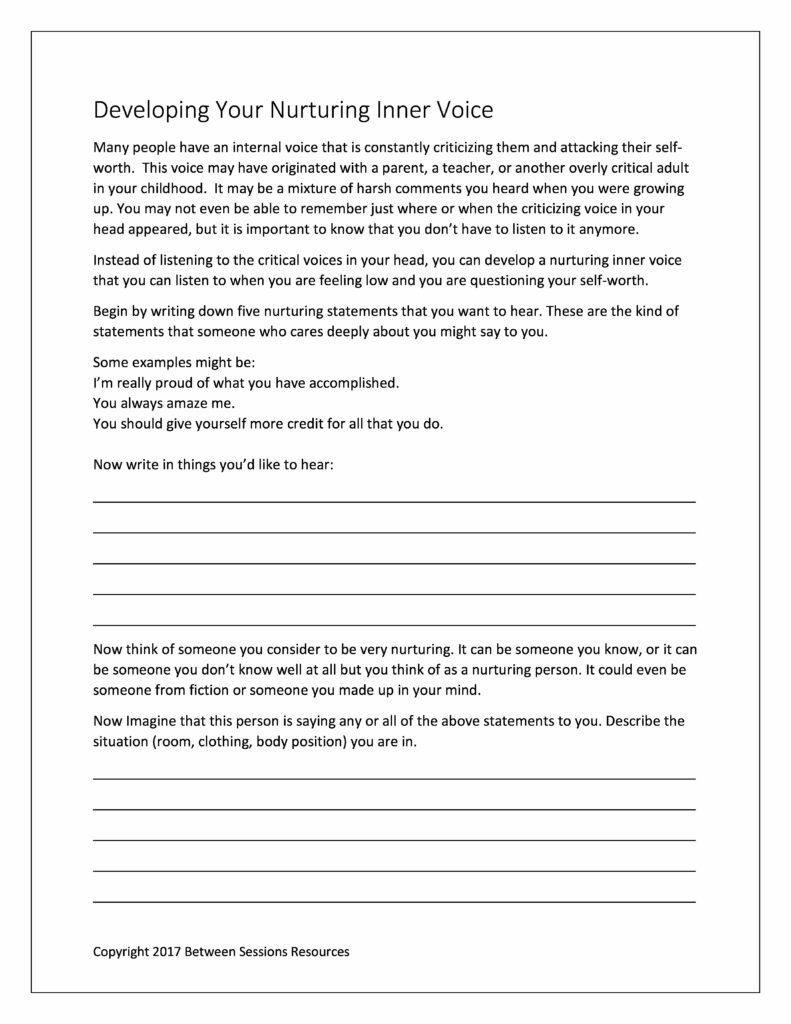Studies tell us that when professionals prescribe therapeutic homework, clients report significantly better outcomes. Our worksheets are derived from evidence-based therapies, and they are designed by experienced professionals. Use the navigation links on the left of this page to view tools in a specific category. Or use the search box at the top of this page to find the exact tool you are looking for.
To modify the tools, click the ‘Send to Client’ button by each tool to open the Psychology Forms Filler. You can then edit the tool as you see fit and either print it out or send it to a client to be filled out online. Click here for a tutorial on using the Psychology Forms Filler.
If you can’t find what you are looking for on this site, please let us know by
clicking here and our team of writers, graphic artists, and therapists will custom-design it for you.
This worksheet is designed to help people talk back to the thoughts that cause them to be anxious and fearful. (anxiety, panic attacks, CBT, 0317)
This worksheet is designed to help people think and talk about their feelings. Players pitch a penny on the worksheet and then talk about the feeling where the penny lands. The game can be played in a small group or even by an individual. (emotional intelligence, depression, communication, social skills, 0317)
This worksheet is designed to encourage people to practice both self-care and self-calming techniques on a daily basis. The worksheet lists types of techniques are effective in each category and includes a form to record the use of these techniques for 21 days (the time it takes to form a habit). (PTSD, depression, anxiety, eating disorders, 0217)
This worksheet asks clients to consider anything that might have helped them in finding solutions to their problems, whether it was something they learned in therapy or something they learned on their own, such as self-help books, advice from a friend, sudden insights, and so on. (0217)
This worksheet is designed to help depressed people become more active by identifying and scheduling various meaningful activities they enjoy doing. (depression, CBT, wellness, 0217)
This worksheet is designed to help people develop a more positive attitude towards themselves and others by having them focus on three things that went right each day and what they did to make these things a positive experience. (depression, happiness, positive thinking, CBT, 0217)
This worksheet is designed to help people replace a critical inner voice with a more nurturing one. It asks the user to imagine a caring person in his or her life and internalize what this person is saying along with the feelings these statements engender. (PTSD, depression, CBT, 0117)
This worksheet describes six active listening techniques that couples can use to resolve conflicts.
This form is to designed to help people think about the most important things they desire from a partner or spouse. The assessment can be done by both people in a couple and then shared following the rules of active listening. (marriage, relationships, couples, 0117).
This questionnaire is designed to help therapists understand the nature and severity of a client’s panic attacks. It includes questions on symptoms, coping mechanism, other mental health concerns, medical conditions, and current medications. (0117, anxiety, panic disorder, assessment)










